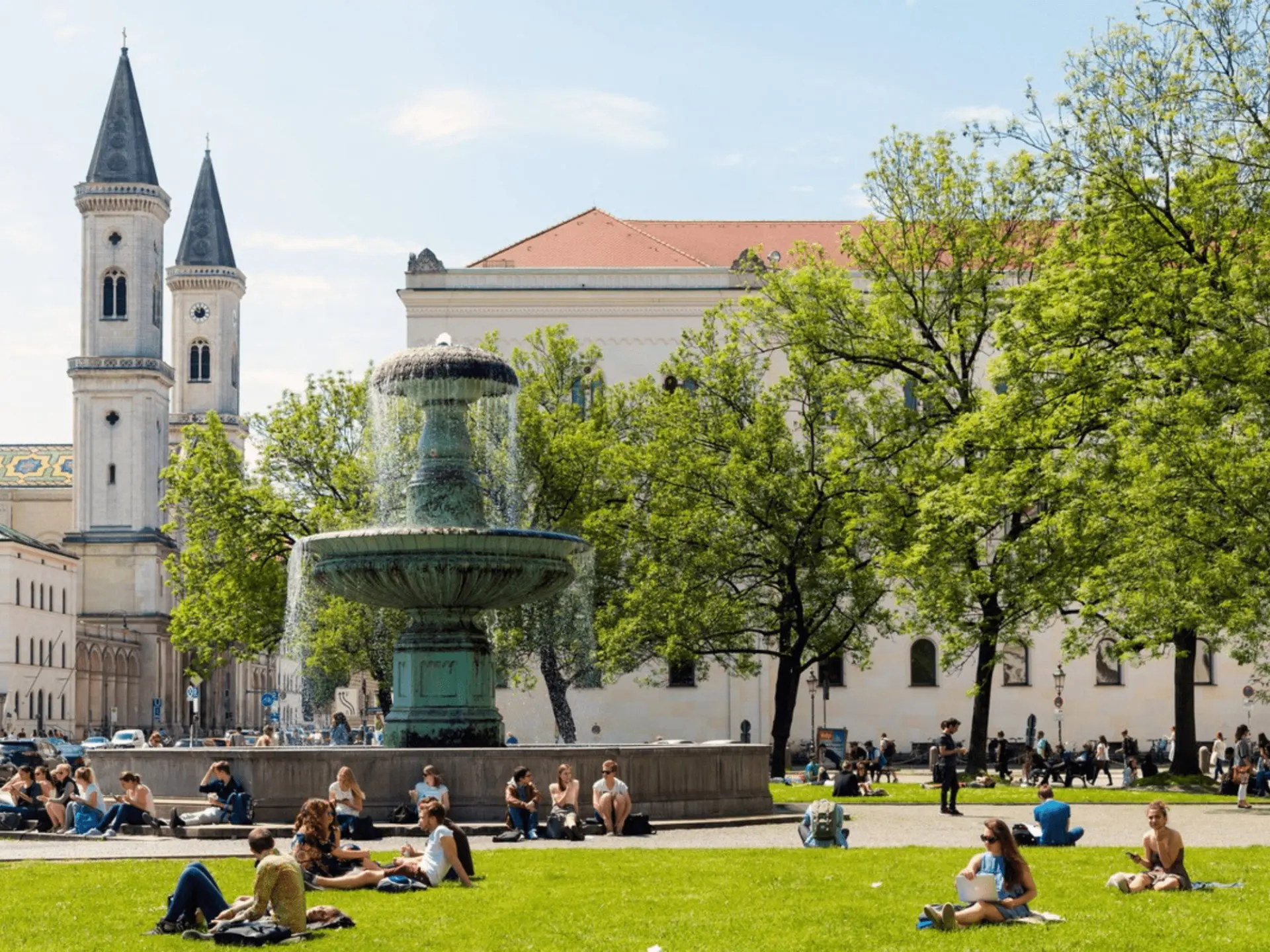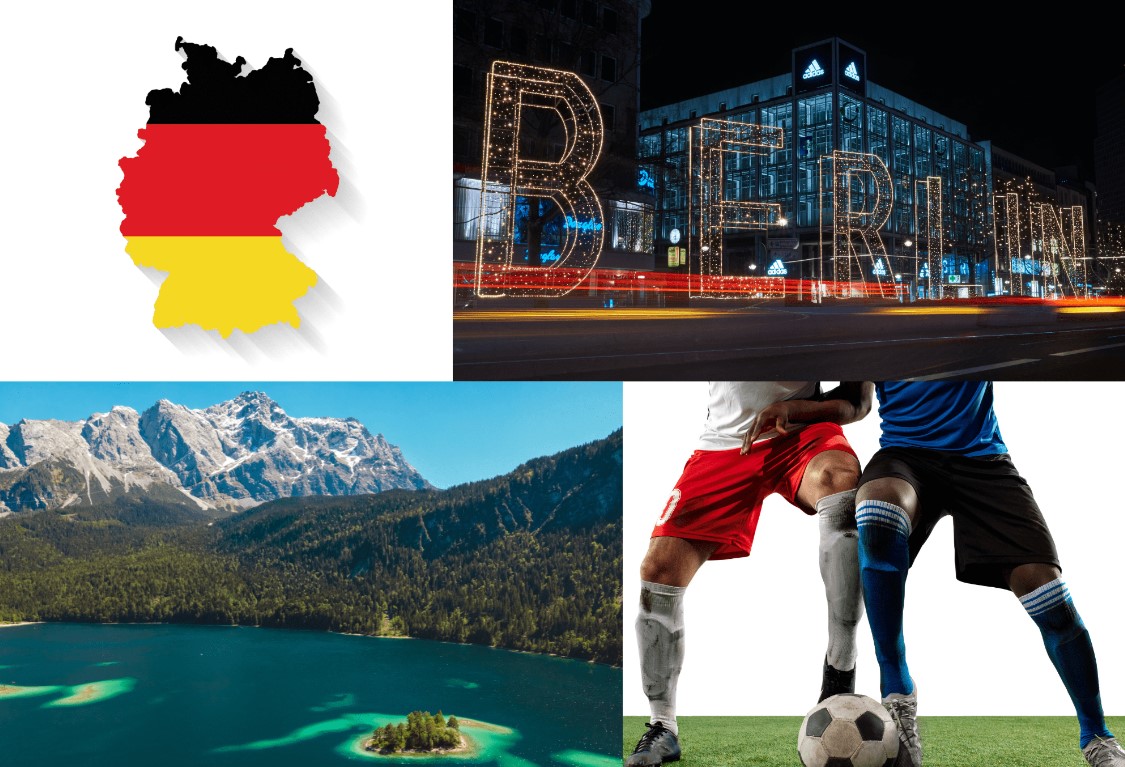Unlock German Birthday Magic: From 'Alles Gute' to 'Reinfeiern'
Servus Liebe Sprachentdecker!
From Faux Pas to Fluency: Navigate German Birthday Customs with Ease
Stellen Sie sich vor: You're at a German birthday party, confident and ready to celebrate. The room buzzes with laughter, the scent of freshly baked Geburtstagskuchen fills the air, and you're about to wish the Geburtstagskind a happy birthday – in perfect German!
Here are a couple of questions to test your knowledge. The answers are at the end of the newsletter.
🗣️ Wie sagt man "Happy Birthday" auf Deutsch?
-
A) Frohe Ostern!
-
B) Guten Rutsch!
-
C) Alles Gute zum Geburtstag!
-
D) Frohe Weihnachten!
🎵 Was singen die Deutschen am Geburtstag?
-
A) "Stille Nacht"
-
B) "Zum Geburtstag viel Glück"
-
C) "99 Luftballons"
-
D) "Ode an die Freude"
👥 Wer organisiert normalerweise die Geburtstagsfeier in Deutschland?
-
A) Die Eltern
-
B) Die Freunde
-
C) Das Geburtstagskind
-
D) Die Kollegen
🎉 This Week's Language Adventure: German Birthday Traditions
Our founder Claudia celebrated her Geburtstag this week, inspiring us to dive into the fascinating world of German birthday customs. Whether you're a beginner or an advanced learner, understanding these traditions will boost your cultural fluency and help you connect more deeply with German speakers.
The Birthday Conundrum
Resist the urge to offer early congratulations.
In Germany, it's considered bad luck to congratulate someone before their actual birthday. This superstition is so ingrained that you might hear, "Ich gratuliere nachträglich," (I congratulate you retroactively) if someone misses your special day.
When the Big Day Arrives
When it's finally time to wish someone a happy birthday, Germans have several ways to express their congratulations:
-
"Alles Gute zum Geburtstag!" (All the best for your birthday!)
-
"Herzlichen Glückwunsch zum Geburtstag!" (Heartfelt congratulations on your birthday!)
-
"Ich wünsche dir alles Liebe und Gute zum Geburtstag!" (I wish you all the love and best wishes for your birthday!)
For close friends or family, you might hear the more casual: "Happy Birthday!" (Yes, the English phrase is commonly used!)
Remember, timing is everything. Save these wishes for the actual birthday to avoid any superstitious faux pas!
Your German Birthday Vocabulary Boost
-
Der Geburtstag (birthday)
-
Die Geburtstagsfeier (birthday party)
-
Das Geburtstagsgeschenk (birthday present)
-
Der Geburtstagskuchen (birthday cake)
-
Das Geburtstagskind (birthday person)
-
Die Glückwünsche (well-wishes)
-
Reinfeiern (celebrating into one's birthday)
-
Die Kerzen (candles)
-
Die Luftballons (ballons)
🎉 Party Time
Unlike in some cultures where others throw you a party, in Germany, it's common for the "Geburtstagskind" to host their own celebration. This might include treating colleagues to cake at work or organizing a gathering for friends and family. Home celebrations are more common than going out to restaurants. It's common to notify neighbors about potential noise with a note in the hallway if living in an apartment.
Fun Fact: Some Germans "reinfeiern" – they start celebrating on the eve of their birthday, partying past midnight into their special day!
🎶 Geburtstagslied (Birthday Song)
Did you know that the German version of "Happy Birthday" is different from the English one? In Germany, people sing "Zum Geburtstag viel Glück," which translates to "Lots of luck for your birthday." Here's how it goes:
Zum Geburtstag viel Glück, zum Geburtstag viel Glück, zum Geburtstag liebe/lieber [Name], zum Geburtstag viel Glück!
🚀 Ready to Level Up Your German Skills?
Imagine confidently navigating a German birthday party, understanding every tradition, and joining in the fun. With Latogo's flexible, private German lessons, you could be there sooner than you think!
Our expert teachers are ready to guide you through the nuances of German culture and language. Book a lesson today and take the first step towards your next language adventure!
Bis zum nächsten Mal, Sprachfreunde!
Your Latogo Team
Antworten/Lösung: 1. C, 2. B, 3. C






